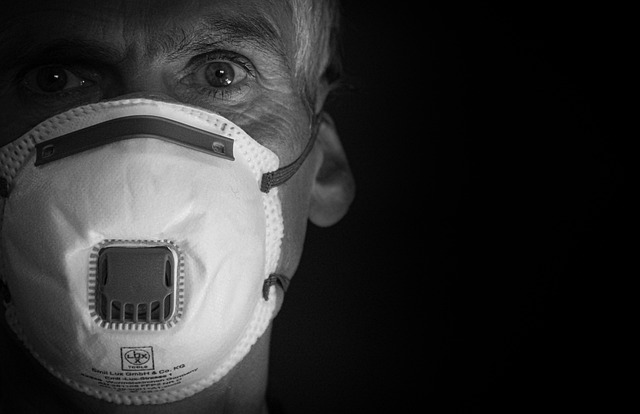Elderly Day Care: A Comprehensive Guide to Care, Community, and Compassion
As populations age across the globe, the need for supportive and compassionate services for seniors has never been more pressing. One solution that is increasingly recognized for its benefits is Elderly Day Care This service offers seniors a safe, engaging, and nurturing environment during the day, while also providing families peace of mind and respite from the challenges of caregiving.
What is Elderly Day Care?
Elderly day care refers to structured programs designed to meet the social, emotional, and healthcare needs of older adults outside their homes. These centers typically operate during the day, allowing seniors to participate in various activities, receive medical supervision if necessary, and build social connections with peers. At the end of the day, participants return home, maintaining their independence while benefiting from professional support during the day.
Unlike residential nursing homes, elderly day care facilities strike a balance by offering care without requiring full-time relocation. For families juggling work, children, and other responsibilities, this service ensures their loved ones remain safe, stimulated, and cared for while they manage their daily obligations.
Key Benefits of Elderly Day Care
1. Social Engagement
Loneliness and social isolation are significant concerns for seniors. Elderly day care centers provide a space where older adults can interact with others, make friends, and engage in group activities such as art, music, games, and exercise. These interactions improve mental well-being and reduce the risk of depression.
2. Health and Safety Monitoring
Many centers have trained staff, including nurses and caregivers, who monitor participants’ health throughout the day. They assist with medication management, mobility support, and monitoring chronic conditions, ensuring that seniors receive the medical attention they require in a safe environment.
3. Cognitive Stimulation
Programs often include activities designed to keep the mind sharp, such as memory games, educational workshops, and creative exercises. Cognitive stimulation plays an essential role in delaying the progression of dementia and other age-related cognitive challenges.
4. Respite for Caregivers
Family members who act as primary caregivers often face stress, fatigue, and burnout. Elderly day care services provide them with a much-needed break, enabling them to attend to work, personal matters, or simply rest, knowing their loved ones are well cared for.
5. Maintaining Independence
Unlike full-time residential care, elderly day care allows seniors to remain in their homes while still receiving structured support during the day. This arrangement fosters independence and respects the dignity of aging individuals.
Types of Elderly Day Care Services
Elderly day care programs are not one-size-fits-all. They are often customized based on the specific needs of the participants.
-
Social Day Care: Focuses on recreation, socialization, and group-based activities.
-
Health-Focused Day Care: Provides medical monitoring, rehabilitation, and assistance with daily living activities.
-
Specialized Programs: Designed for seniors with conditions such as dementia or Alzheimer’s disease, offering tailored cognitive support and memory-enhancing activities.
Activities in Elderly Day Care Programs
The hallmark of a good elderly day care center is its ability to engage participants meaningfully. Common activities include:
-
Arts and crafts to encourage creativity
-
Gentle exercise routines for mobility and strength
-
Group games that promote teamwork and fun
-
Music therapy sessions to enhance emotional well-being
-
Nutritionally balanced meals and snacks
-
Health talks and wellness workshops
-
Outings to parks, museums, or cultural events
These activities not only occupy time but also enrich the lives of seniors by fostering joy, connection, and purpose.
Who Can Benefit from Elderly Day Care?
Elderly day care is particularly beneficial for:
-
Seniors who feel isolated or lonely at home.
-
Those who need supervision due to age-related health conditions.
-
Individuals recovering from surgery or illness who require temporary care.
-
Older adults with mild to moderate dementia.
-
Families seeking a balance between caregiving and other responsibilities.
Importantly, elderly day care is not limited to those in declining health. Even healthy, active seniors can find joy and companionship in these programs, preventing the onset of loneliness and inactivity.
Addressing Common Concerns
Families may hesitate to consider elderly day care due to misconceptions. Some worry it may signal neglect or abandonment, while others fear their loved one may resist the idea. However, when framed as an opportunity for socialization, enrichment, and improved well-being, many seniors embrace the experience.
Additionally, most centers offer trial sessions or flexible arrangements, allowing families to ease into the transition and evaluate the fit before committing long-term.
The Future of Elderly Day Care
With global life expectancy increasing and family structures evolving, the demand for elderly care solutions is rising rapidly. Elderly day care is poised to play a central role in community-based eldercare models. Future centers are expected to integrate more advanced technologies, such as telehealth services, digital monitoring, and personalized care plans.
Moreover, governments and healthcare organizations are beginning to recognize the importance of these services, leading to potential subsidies, partnerships, and expansion of facilities. The goal is to make elderly day care more accessible, affordable, and adaptable to the diverse needs of aging populations.
Choosing the Right Elderly Day Care Center
When selecting a center, families should consider the following factors:
-
Accreditation and Licensing: Ensure the facility meets healthcare and safety standards.
-
Staff Qualifications: Look for trained professionals with experience in elderly care.
-
Range of Services: Match the offerings to the senior’s needs, whether social, medical, or specialized.
-
Environment: A clean, welcoming, and safe environment is crucial for comfort and trust.
-
Flexibility: Programs should accommodate different schedules, including full-day or half-day options.
-
Feedback from Others: Testimonials and reviews from families can provide valuable insights.
Ultimately, the right choice will balance professional care with compassion, ensuring seniors feel valued and supported.
Conclusion
Elderly day care is more than just a service; it is a lifeline for both seniors and their families. By offering structured programs that combine healthcare, social interaction, and personal enrichment, these centers empower older adults to live fulfilling lives while easing the burden on caregivers.
As societies continue to adapt to aging demographics, elderly day care will remain a cornerstone of sustainable eldercare solutions. It represents a compassionate approach that respects the dignity, independence, and joy of older generations—values that every community should cherish.
By investing in such services, families not only safeguard the health and happiness of their loved ones but also ensure a brighter, more connected future for aging populations worldwide.







